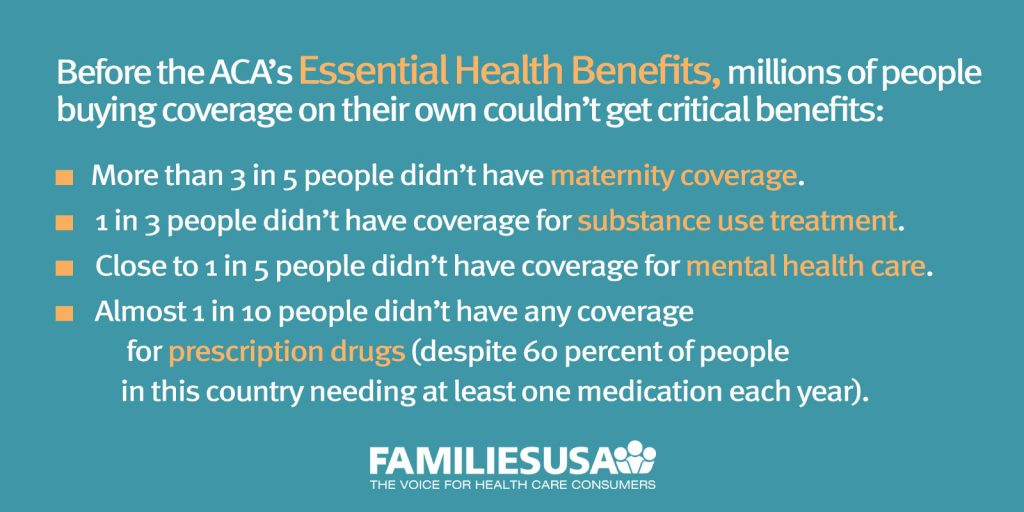The Best Strategy To Use For Medicare Advantage Agent
The Best Strategy To Use For Medicare Advantage Agent
Blog Article
The 7-Minute Rule for Medicare Advantage Agent
Table of ContentsSome Known Questions About Medicare Advantage Agent.The 30-Second Trick For Medicare Advantage AgentAbout Medicare Advantage AgentA Biased View of Medicare Advantage AgentTop Guidelines Of Medicare Advantage AgentMedicare Advantage Agent for DummiesAn Unbiased View of Medicare Advantage Agent

Health care protection helps you get the treatment you need and shields you and your household monetarily if you get sick or injured. View: Are you instantly needing wellness insurance coverage? All wellness intends need you to.
Get This Report about Medicare Advantage Agent
pay some of the cost of expense health careHealth and wellness
The quantities vary by plan. Your wellness strategy may pay 80 % of the expense of a surgical treatment or healthcare facility stay.
The percent you pay in coinsurance differs by strategy. Federal legislation establishes restrictions on the amount you pay out of pocket in a strategy year.
Rumored Buzz on Medicare Advantage Agent

The 4 kinds are: HMO plans. Special provider (EPO) strategies. Preferred company (PPO) plans. Point-of-service plans. All 4 types are managed care plans. This indicates they contract with physicians and various other healthcare companies to treat their participants at reduced prices. These carriers comprise a strategy's network. Managed care plans restrict your selection of medical professionals or urge you to make use of doctors in their networks.
The plans vary in the level to which you can use physicians outside the network and whether you must have a medical professional to supervise your care. If you do not, you could have to pay the complete cost of your treatment on your own.
You'll additionally have a copayment if you most likely to the emergency clinic or see a professional. The quantities differ by strategy. is an amount you pay for a covered solution after you've met your deductible. It's normally a portion of the price of the service. Your health plan may pay 80 % of the cost of a surgery or hospital remain.
The Buzz on Medicare Advantage Agent
The percentage you pay in coinsurance differs by strategy. Federal regulation sets restrictions on the amount you pay out of pocket in a plan year.
A strategy year is the 12-month duration from the day your insurance coverage began - Medicare Advantage Agent. There are 4 kinds of significant clinical wellness strategies in Texas.
Exclusive service provider (EPO) strategies. i loved this All four kinds are taken care of care plans. Handled treatment plans restrict your selection of doctors or encourage you to use physicians in their networks.
The strategies differ in the level to which you can use medical professionals outside the network and whether you must have a doctor to oversee your treatment. You have to make use of carriers in the HMO's network. If you do not, you may need to pay the complete cost of your care yourself. There are exemptions for emergency situations and if you require treatment that isn't readily available in the network.
The Best Guide To Medicare Advantage Agent
The amounts differ by strategy. Your health plan may pay 80 % of the expense of a surgical treatment or healthcare facility remain.
The portion you pay in coinsurance varies by strategy. You normally do not have to pay coinsurance in an HMO. Federal regulation establishes Going Here restrictions on the amount you pay of pocket in a plan year. Some plans have reduced out-of-pocket restrictions. After you reach the restriction, you don't have to pay copayments or coinsurance for the remainder of the plan year.
A strategy year is the 12-month duration from the date your insurance coverage started. There are 4 types of major medical wellness strategies in Texas.
The four types are: HMO strategies. Unique company (EPO) strategies. Preferred copyright (PPO) strategies. Point-of-service strategies. All 4 types are taken care of treatment plans. This implies they contract with medical professionals and various other health and wellness care suppliers to treat their participants at affordable prices. These companies make up a strategy's network. Handled treatment plans limit your choice of physicians or urge you to utilize doctors in their networks.
The Only Guide to Medicare Advantage Agent
The plans differ in the extent to which you can utilize physicians outside the network and whether you must have a medical professional to supervise your treatment. If you don't, you might have to pay the full expense of your care on your own.
The amounts differ by strategy. Your health and wellness strategy may pay 80 % of the price of a surgery or health center remain.
The portion you pay in coinsurance differs by strategy. You usually don't have to pay coinsurance in an HMO. Federal law sets limits on the amount you pay of pocket in a strategy year. Some strategies have lower out-of-pocket limitations. After you reach the limit, you do not have to pay copayments or coinsurance for the remainder of the strategy year.
A strategy year is the 12-month duration from the day your coverage began. If your insurance coverage began on September click 1, your strategy year lasts till August 31. Learn more: How to conserve money at the medical professional Treatment options and costs There are 4 kinds of major clinical health insurance in Texas.
Indicators on Medicare Advantage Agent You Should Know
Special copyright (EPO) plans. All 4 kinds are taken care of treatment plans. Managed care plans restrict your option of physicians or motivate you to use doctors in their networks.
The strategies differ in the degree to which you can utilize medical professionals outside the network and whether you must have a physician to manage your care. If you do not, you might have to pay the complete price of your care on your own.
Report this page